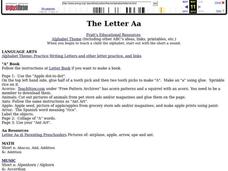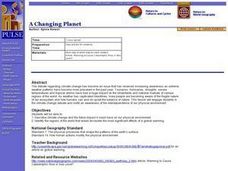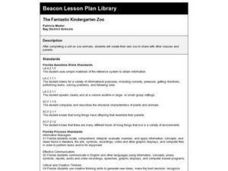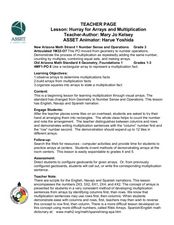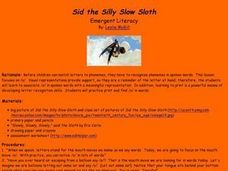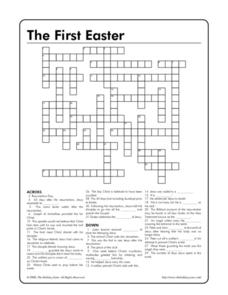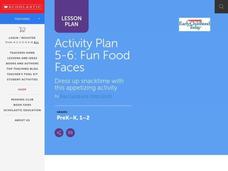Curated OER
The Flea's Sneeze Lesson Plan
Students read a book and engage in three different activities. In this lesson about repetitive story patterns, students read a story, The Flea's Sneeze, and examine how the story has a rhythmic pattern of rhyming verse that sounds like a...
Curated OER
Science: Observing Fish Behavior
Fifth graders, working in pairs, select and observe fish in the Aquademics aguarium. They record their observations on worksheets and make graphs displaying the frequency of various fish behaviors. Students then discuss their...
Curated OER
Acting Like a Bunch of Animals: Fables and Human
The video "The Tales of Aesop" traces for viewers the history of fables and identifies their characteristics. The class then goes to the web site "The Fisherman and the Little Fish" where they examine the classic and a modern version of...
Curated OER
Invertebrates and Vertebrate Evolution
Learners explore the major characteristics of the major animal phyla. They describe adaptive features that have contributed to the success of animals on land. Students explain how primate evolution provides a context for understanding...
Curated OER
Endangered Ecosystems Grades 4-5
Students read about research at the field sites. They read field reports from team members at the site. Students conduct their own research on ecosystems in their lives. They explore and build an interactive food web. Students create...
Curated OER
Oil + Water + Wildlife = A Real Mess
Students conduct an experiment. In this environmental protection lesson, students explore how oil spills affect living organisms in an ecosystem. Students work in groups to complete a lab activity and then discuss their findings.
Curated OER
A Look At Osteoporosis
Eleventh graders study osteoporosis and understand the relationship between calcium and bone mass. In this investigative lesson plan students participate in an activity in which they graph and construct basic bone biology.
Curated OER
Biomes -- Part II
Students use the internet to gather information on the biomes of the world. They identify the climate and unique characteristics of each biome along with any threat to them. They create their own campaign to preserve wildlife.
Curated OER
The Letter Aa
Students explore letter Aa. In this letter recognition lesson, students participate in country, state, food, literature, physical education, colors, careers, music, and game activities that are linked to the main lesson page....
Curated OER
Caille The Caterpillar
Students investigate the six groups of the food pyramid. In this food pyramid lesson plan, students work in a group to find a pictures of their assigned food group. They put the pictures in the "caterpillars" mouth which is based on the...
Curated OER
Fulcrums in Our Body
Second graders discuss fulcrums and levers and identify at least two fulcrums and levers on their bodies. They also identify fulcrums and levers on animal bodies.
Curated OER
A Changing Planet
Students describe climate change and the future impact it could have on our physical environment. They identify the regions of the world that would encounter the most significant effects of a global warming.
Curated OER
Oh No! Oil Spills
Students discover the threats of an oil spill. In this ecological awareness instructional activity, students examine the effects of oil spills on animals and our oceans. Students get simulated oil on themselves and discover...
Curated OER
Vincent Van Gogh's Starry Words: Art, Art History, Language Arts, Creative Writing
Pupils write a story inspired by Vincent Van Gogh's "Starry Night" and then try their hand at their own rendition of this famous piece of art. In a twist, students incorporate the stories into their paintings.
Curated OER
The Fantastic Kindergarten Zoo
First graders create their own zoo to share with other classes and parents. Groups create displays for the animals. Have each group brainstorm how they create a display for their animal.
Curated OER
Two Way Causality in Ecosystems
Students complete various activities in order to explain that ecosystems are complex and that animal behavior (mainly that of a predator) is not necessarily intentional or bad.
Curated OER
Geology Quiz- Common Rocks
In this earth science quiz worksheet, students attempt to guess the name of the rocks based on the descriptions that are given on the page. They determine the names of 10 rocks that are igneous or sedimentary, and check their work with...
Curated OER
Hurray for Arrays and Multiplication
Third graders begin learning about multiplication using arrays. In this multiplication with arrays lesson, 3rd graders interact with tiles on the overhead as they follow the teacher in making arrays. They write multiplication sentences...
Curated OER
Sid the Silly Slow Sloth
Students complete a variety of activities related to the /s/ sound. They write the letter S, and listen to word pairs, identifying the word in each pair that contains the /s/ sound. Students then listen to the book "Slowly, Slowly,...
Curated OER
The First Easter
In this Easter fun activity activity, students use the 32 clues to identify the words needed to complete the crossword puzzle.
Curated OER
You Belong in the Zoo Project - Using HyperStudio
Students explore the diversity of living organisms. They research an animal found in the zoo and plans a 10-card HyperStudio project about his/her organism.
Curated OER
Rocking the Boat
Students work together to discover the concepts of stability and equilibrium. They examine how equilibrium is related to an item's center of mass. They create their own action scene in a literacy activity.
Curated OER
Fun Food Faces
Students create fun food faces. In this animal shaped food lesson, students use food to create faces on a bagel or rice cake. They can eat their masterpieces when they have finished.
Curated OER
Word Jumble
In this word scramble worksheet, students use the clues to help them unscramble and correctly spell the words. Students spell 36 words.










